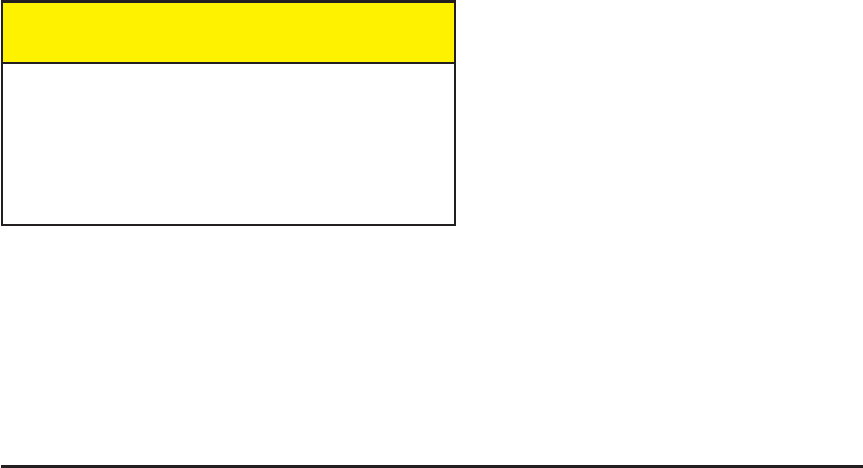
• Attach a flag to the vehicle to make you more
visible to approaching traffic on trails or hills.
• Sound the horn as you approach the top of the hill
to let opposing traffic know you are there.
• Use your headlamps even during the day. They
make you more visible to oncoming traffic.
{CAUTION:
Driving to the top (crest) of a hill at full speed
can cause an accident. There could be a
drop-off, embankment, cliff, or even another
vehicle. You could be seriously injured or
killed. As you near the top of a hill, slow down
and stay alert.
Q: What should I do if my vehicle stalls, or is about
to stall, and I cannot make it up the hill?
A: If this happens, there are some things you should
do, and there are some things you must not do?
First, here is what you should do:
• Push the brake pedal to stop the vehicle and keep
it from rolling backwards. Also, apply the parking
brake.
• If your engine is still running, shift the transaxle to
REVERSE (R), release the parking brake, and
slowly back down the hill in REVERSE (R).
• If your engine has stopped running, you will need to
restart it. With the brake pedal pressed and the
parking brake still applied, shift the transaxle
to PARK (P) (or, shift to NEUTRAL if you have a
manual transaxle) and restart the engine. Then shift
to REVERSE (R), release the parking brake, and
slowly back down the hill as straight as possible in
REVERSE (R).
• As you are backing down the hill, put your left hand
on the steering wheel at the 12 o’clock position.
This way you will be able to tell if your wheels are
straight and maneuver as you back down. It is
best that you back down the hill with your wheels
straight rather than in the left or right direction.
Turning the wheel too far to the left or right
will increase the possibility of a rollover.
4-23


















